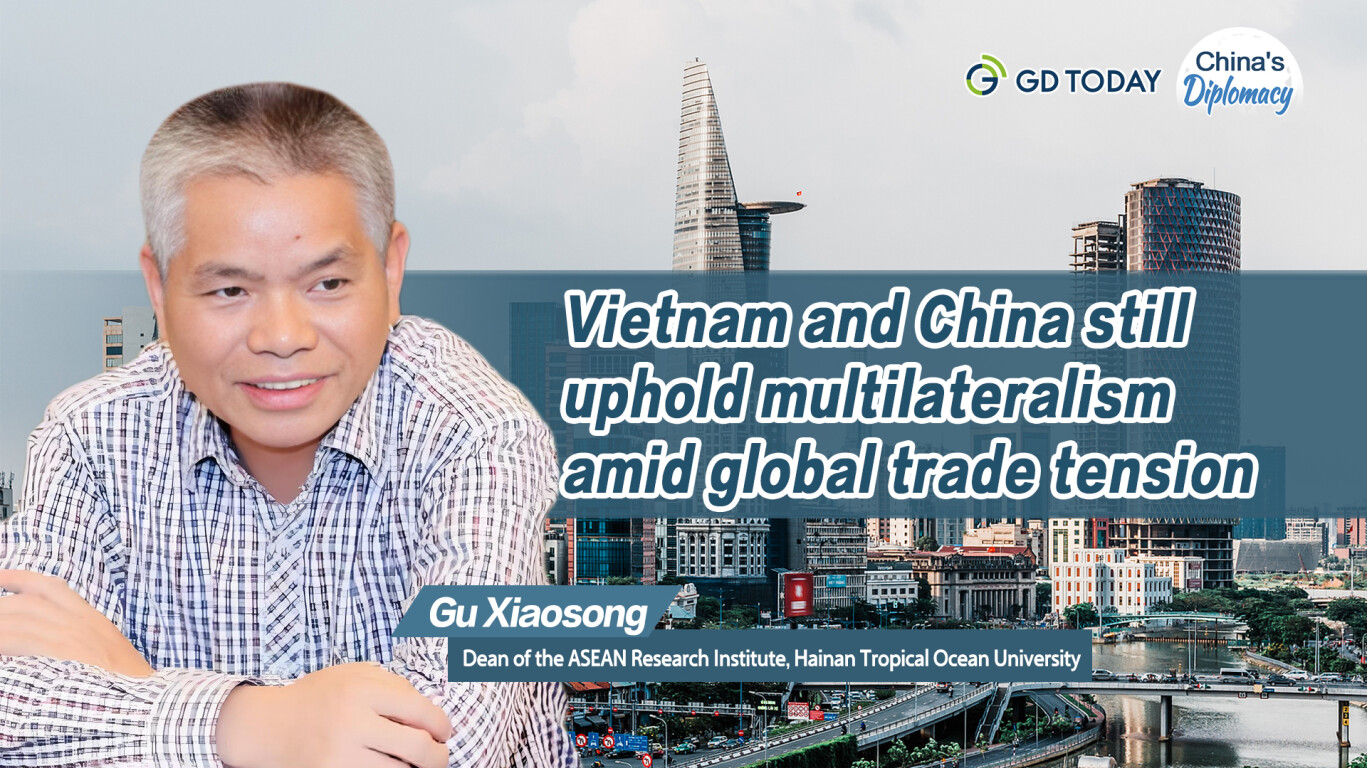
On April 15, Chinese President Xi Jinping concluded his state visit to Vietnam, one of three nations on his Southeast Asian tour. The two neighboring countries pledged to work together to accelerate the development of a community with a shared future that holds strategic significance.
At the end of the visit, the Chinese side expressed full confidence in the future of China-Vietnam relations. This year marks the 75th anniversary of diplomatic ties between the two nations, and they signed a joint statement to further cooperation.
"The statement will help translate high-level consensus into practical actions. China and Vietnam aim to create greater well-being for the peoples of both countries and contribute to global development," said Professor Gu Xiaosong from the ASEAN Research Institute at Hainan Tropical Ocean University in an exclusive interview with GDToday.
Vietnam to join forces in seeking new quality productive forces
One of the key agreements made during this trip was a shared vision for new quality productive forces and a commitment to building more extensive and in-depth cooperation between the two countries.
Data shows that over the past two decades, China has remained Vietnam's largest trading partner, with bilateral trade surpassing US$260 billion in 2024. "Building on this robust foundation, the two sides are poised to elevate cooperation in economic, trade, and industrial supply chains to new heights," noted Professor Gu.
He emphasized the synergy in economic collaboration between the two nations, highlighting potential gains in the digital economy, green economy, scientific and technological innovation, and infrastructure development.
"Currently, China and Vietnam are utilizing e-commerce platforms to streamline cross-border agricultural trade, such as live-streaming sales of Vietnamese fruits to Chinese consumers," he added.
To further enhance new quality productive forces, he believes that ongoing partnerships in infrastructure connectivity deserve more attention. "The two nations must accelerate efforts to align and construct three standard-gauge railway lines connecting China and Vietnam. These projects are set to transform regional logistics, enhance trade efficiency, and deepen economic integration."
As of now, China has approved the feasibility study for the Lao Cai-Hanoi-Hai Phong standard-gauge railway project, which will commence construction soon. Concurrently, feasibility studies for the Hekou-Lao Cai railway link will be expedited to lay the groundwork.
Efforts will be made to strengthen people-to-people ties
The year 2025 has been designated as the "China-Vietnam Year of People-to-People Exchanges." The Chinese side has stated that both countries should seize this critical opportunity to organize more people-oriented exchange activities and enhance cooperation in tourism, culture, media, public health, and other fields.
"China and Vietnam are historically good friends. It is beneficial to explore shared historical memories through short videos and cross-border live streaming, solidifying the foundation of friendship between our two nations," said Gu.
He pointed out that artistic exchanges bring people closer together. "Cultural institutions and art troupes from both sides should meet and collaborate. Chinese cultural interests can be showcased in Vietnam, and China welcomes Vietnam to establish its first cultural center in Beijing," he stated.
Vietnam and China still uphold multilateralism amid global trade tension
According to Professor Gu, given the reciprocal tariffs imposed by U.S. President Donald Trump, China and ASEAN member countries, the most heavily impacted, are called to engage in more dialogue to protect Asia from further protectionist measures and extreme coercion. The timing of this visit is crucial, as Vietnam, a major member of ASEAN, has much to contribute in seeking solutions.
"Coordination between ASEAN and China is vital to address external challenges such as U.S. tariff policies," he explained. "Through platforms like ASEAN and BRICS, they will jointly oppose unilateral sanctions, advance WTO reform agendas, and strengthen regional economic collaboration between China and Southeast Asia."
To counter the risks posed by U.S. measures of "decoupling and supply chain fragmentation," China and Vietnam will accelerate cross-border industrial chain integration, leading to deeper manufacturing interdependence.
"In sectors like electronics and textiles, it is important to diversify reliance on single markets. The two sides should consider building various industrial chains," he advised. "They could leverage blockchain traceability technology to streamline customs clearance for agricultural and electronic products."
Reporter: Guo Zedong
Poster: Lai Meiya
Editor: Yuan Zixaing, James, Shen He
















